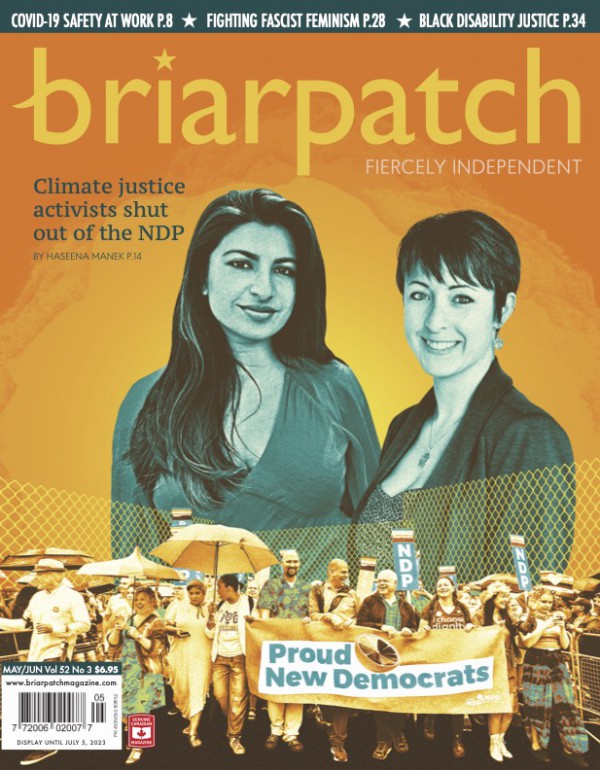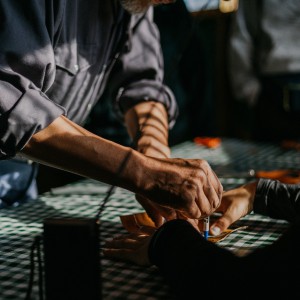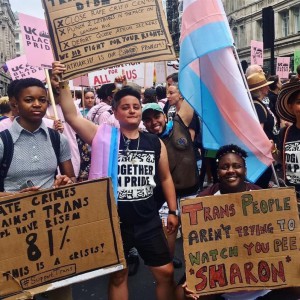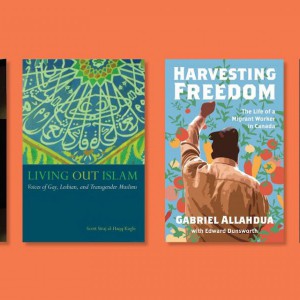
Who is the NDP for?
Climate justice activists shut out of the NDP. Plus: union members fight for COVID-19 safety, industry and government push pipeline ownership onto First Nations, the winner of the 2022 Northern Writing Prize, a review of Black Disability Politics, and an argument for abolitionist sex education.
Add To Cart $6.95
-
_300_300_90_s_c1.jpg) Magazine
MagazineThe struggle lies beyond the bargaining table
Losing an election or settling for a subpar collective agreement can feel like devastating losses in leftists’ larger struggle for power. As we continue to organize for better working and living conditions, the articles in this issue remind us that the struggle isn’t won at the polls or at the bargaining table, but on the picket line, on doorsteps, and in conversations with our communities.
-
 Magazine
MagazineThe canoe as home
Youth canoeing camps resist colonial policies and occupation by restoring Indigenous youth’s relationships with canoeing.
-
 Magazine
Magazine“They don’t know how to fight for this”
In year four of the COVID-19 pandemic, will unions fight for workers’ right not to get sick on the job?
-
 Magazine
MagazineWho is the NDP for?
Rule changes, hostile colleagues, and a lack of democracy – Anjali Appadurai, Kaitlyn Harvey, and Navjot Kaur share their experiences organizing and running with the NDP.
-
 Magazine
MagazinePushing pipeline ownership onto First Nations
How industry and governments hatched plans to pass the most contentious pieces of resource industry infrastructure onto First Nations
-
 Magazine
MagazineFighting fascism in feminism
Five trans feminists on the rise of fascist feminism and how to fight back.
-
_300_300_90_s_c1.jpg) Magazine
MagazineBlack radicalism has always included disability justice
In her new book “Black Disability Politics,” Sami Schalk highlights the Black disability justice activism overlooked by mainstream disability rights movements and writing.
-
 Magazine
MagazineA reading list on resisting dehumanization
In this reading list, Black women, queer and trans people, people who use drugs, sex workers, and migrants share their stories of marginalization and their fight to be recognized as valuable community members.
-
 Magazine
MagazineThe case for abolitionist sex education
If we’re serious about addressing sexual harm and providing consent-based sex education, we need to teach students about alternatives to the police and equip them with tools to deal with harm when it happens in their communities.







